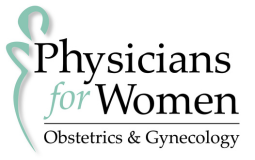If you’re having difficulty getting pregnant, the problem might be a gynecological disorder. Many women suffer from not-so-obvious issues or have had their symptoms brushed off by primary care doctors as common complaints related to the female reproductive system.
At Physicians for Women in Madison, Wisconsin, our team of reproductive health specialists can help determine if a gynecological disorder is causing your infertility and provide treatment for your condition.
Misconceptions Around Infertility
Historically, infertility has been considered the woman’s “fault,” no matter what the cause. In reality, infertility is just as likely to be related to an issue with the male partner, or both partners could have a fertility problem that prevents them from conceiving.
Another misconception is that female conditions that cause infertility are usually obvious and either quickly addressed or completely unsolvable. The truth is that many women go undiagnosed for decades, and even if one issue is diagnosed and treated, there could be other contributing factors to their fertility that also need to be identified.
Gynecological Disorders Affecting Fertility
Gynecologic care goes beyond the routine annual Pap smear. Women should see their gynecologist any time they have a concern about their reproductive system, whether the issue is pain, heavy periods, missed periods, or infertility.
Endometriosis
Endometriosis occurs when tissue in the uterus (endometrium) multiplies and migrates to other parts of the body (usually in the pelvic region). The result can be extremely heavy and painful periods and/or infertility.
Endometriosis can be treated medically to reduce symptoms, or surgically to remove endometrial tissue around the ovaries and fallopian tubes that could be causing infertility. However, surgery may not resolve the issue, and many women who have endometriosis-related infertility end up turning to in vitro fertilization (IVF) to conceive.
Polycystic Ovarian Syndrome (PCOS)
Polycystic ovarian syndrome is a hormone imbalance problem. The imbalance frequently interferes with normal ovulation, making PCOS one of the most common causes of infertility in women aged 16 to 44.
One of the most common symptoms of PCOS is menstrual period irregularity. Women with PCOS may have long spaces of time between periods, extremely heavy periods, or no periods at all. Fortunately, oral medications can often help women with PCOS ovulate and become pregnant.
Primary Ovarian Insufficiency (POI)
Primary ovarian insufficiency happens when ovaries stop working normally before a woman reaches the age of 40 years. POI differs from early menopause in that a woman with POI can still ovulate intermittently and become pregnant.
Some women benefit from hormone replacement treatment (HRT), which may result in normal ovulation and a chance to conceive. Others need IVF and may even require donor eggs in order to get pregnant.
If you’re struggling with infertility and have been trying to become pregnant for a year or more, it’s time to get professional help. A gynecological condition might be at the core of your issues, and treatment could help you achieve your dream of becoming a parent.
To schedule a consultation at Physicians for Women, call 608-227-7007, or visit our contact page for more options.
